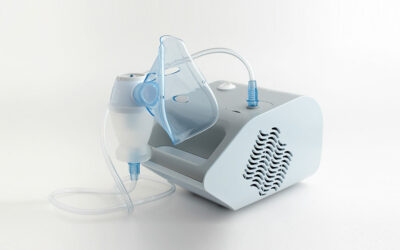If you have moderate to severe asthma, learn why getting your flu shot is especially important due to the ongoing COVID-19 pandemic.
Asthma
What vaccines are recommended for adults and children with asthma?
Get the facts about recommended vaccines for people with asthma. Work with your healthcare team to stay on track with vaccinations for your family.
How to Recognize the Warning Signs of RSV in Children
Allergist Purvi Parikh, MD answers your questions about respiratory syncytial virus (RSV): What are the symptoms, treatment, and prevention.
10 Ways to Stay Healthy During the September Asthma Peak Week
Learn about the September asthma peak and how children and adults can best self-manage to avoid an asthma attack at this time of year.
Wildfire Smoke, Air Quality, and Your Health
Dr. Purvi Parikh, MD, allergist and immunologist, answers important questions about air quality, wildfire smoke, and your health.
Summer Asthma and Warm Weather
Explore some of the causes of summer asthma, identify common triggers and learn summer asthma tips to avoid flare-ups.
What You Can Do About Climate Change And Air Pollution
Learn ways people with allergies and asthma can do to manage the impact of climate change and poor air quality, and how to advocate for improvements.
Albuterol in Short Supply? Here’s What to Do
April 4, 2023 The ongoing shortage of liquid albuterol appears to be improving. Hospitals and...
Allergies, Asthma and Autism
April 3, 2023 Asthma and autism are distinctly different medical conditions. Asthma is a chronic...
What is an Asthma Coach?
An asthma coach is a healthcare professional who helps asthma patients manage their disease more effectively.
What is SMART Therapy for Asthma?
SMART therapy stands for Single Maintenance and Reliever Therapy. It is sometimes also called MART...
New Severe Asthma Research: Join the PrecISE Study
We invite you to take part in the NHLBI-sponsored PrecISE study to examine ways to treat people with severe asthma.
All About
Asthma is a condition that affects about 25 million Americans, including 7.7% of adults and 8.5% of children. Asthma used to carry a stigma about how active someone with the condition could be, but people with asthma can live an active life as long as they are aware of their symptoms and environmental triggers, and know how to manage their medications.
Pollen, mold, air pollution, pet dander and indoor pests such as dust mites are common symptom triggers for asthma. Severe weather emergencies impact people with asthma as they need to consider their medication in case of evacuation. Environmental disasters such as wildfires can wreak havoc on asthma since smoke particles cause air quality to worsen. People with asthma should monitor air quality and be sure to include stress management, healthy diet and exercise in their daily lives.
People with asthma can control their symptoms and keep themselves safe by following their Asthma Action Plan created in partnership with their doctor. Quick-relief asthma inhalers can help relieve symptoms that occur at any time, while maintenance medications control symptoms daily. Biologic medications are increasingly used to address severe asthma. Getting the flu shot every year and practicing good hygiene, especially when around large groups during cold and flu season, is always a good idea. Eating healthy and getting moderate exercise, as well as practicing stress-relieving activities like yoga and meditation, can also help protect people with asthma. Keeping an emergency kit that includes extra asthma medication and devices, copies of medical records and prescription refill information, respirator masks, a list of contacts and a medication plan in preparation for speaking with doctors or other healthcare providers is also useful.
Allergy & Asthma Network hosts the USAsthma Summit every year to raise understanding about the chronic condition among community health workers and representatives from asthma programs from all over the country. They discuss strategies, guidelines and programs for asthma management as well as the latest clinical lessons and practices.












